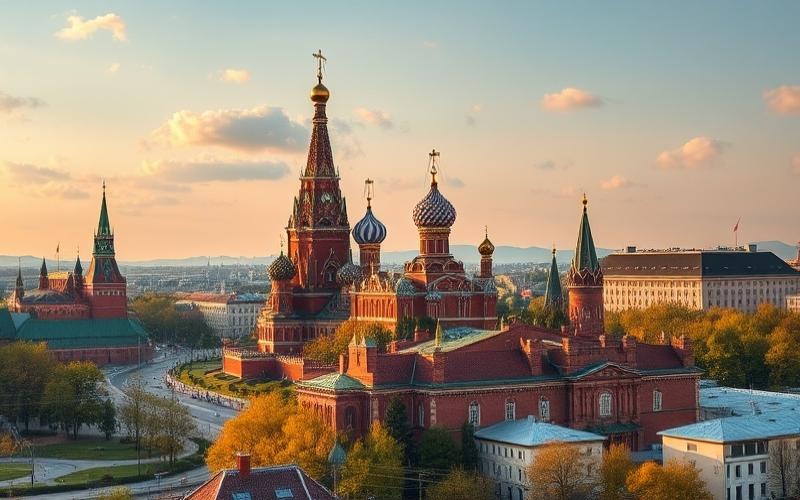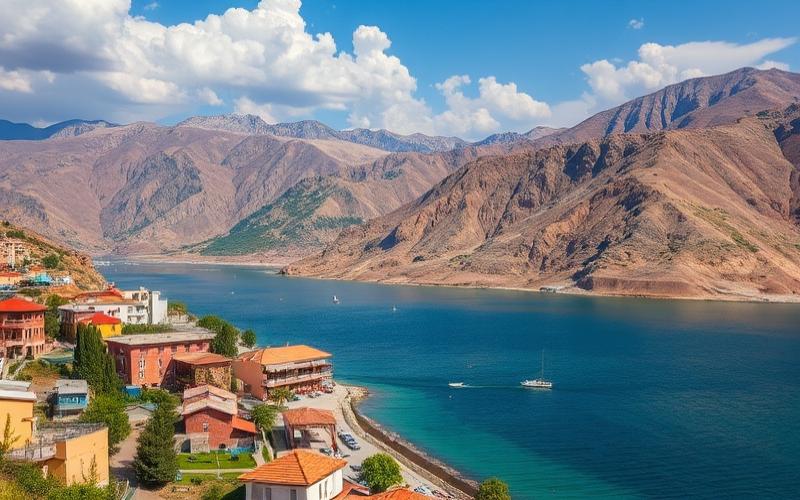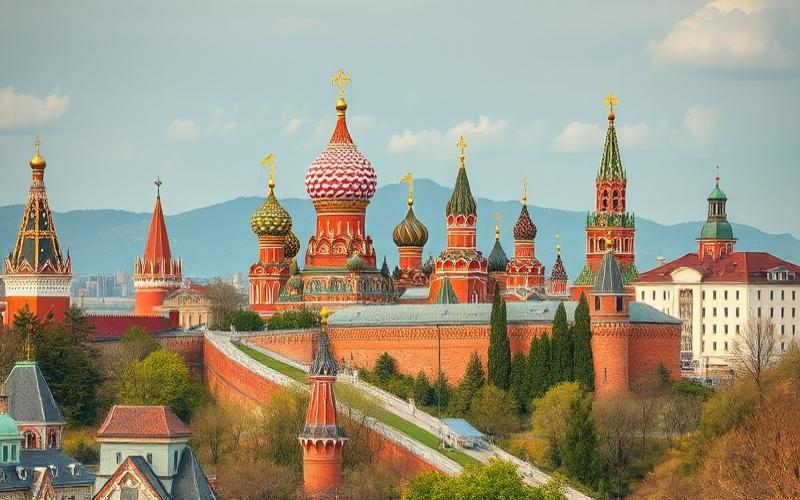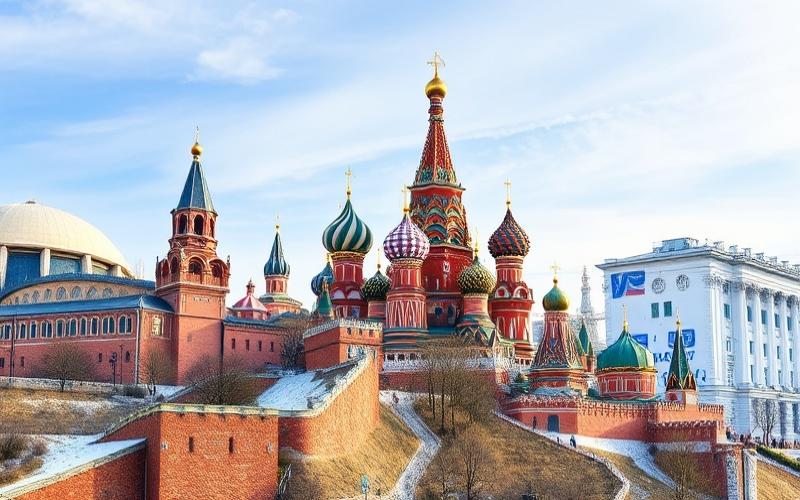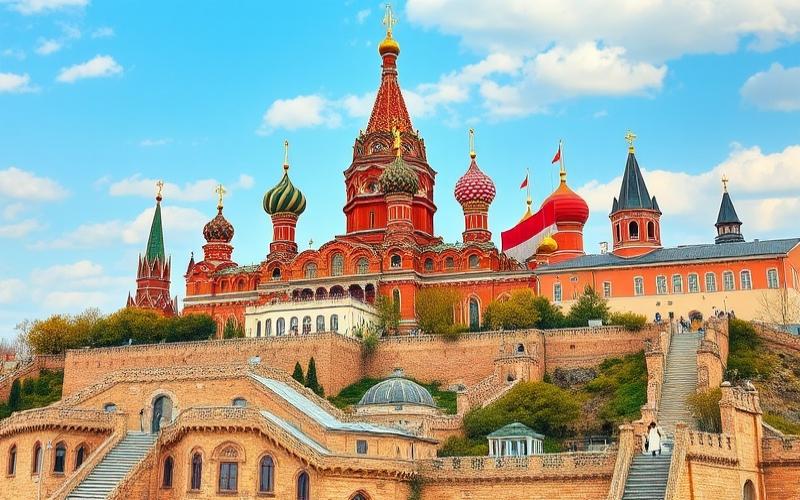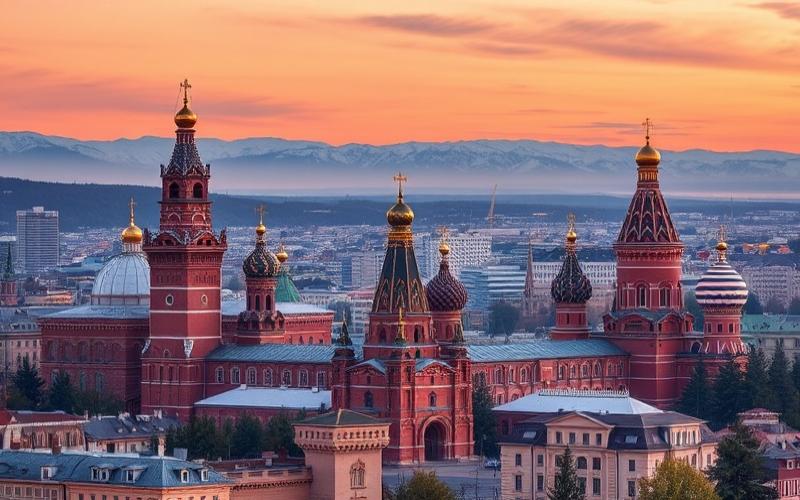
 Published on and written by Cyril Jarnias
Published on and written by Cyril Jarnias
In an ever-changing economic world, consumer rights play a crucial role in ensuring a healthy and balanced economy. In Russia, where market dynamics are shifting, it’s essential to understand the remedies and guarantees available to consumers.
This article explores key elements of Russian consumer protection legislation, highlighting mechanisms in place to defend individuals’ rights against sometimes abusive commercial practices. From appeal bodies to legal guarantees, discover how these instruments are implemented to safeguard your interests and promote an ethical and transparent commercial environment.
Consumer Rights in Russia: Understanding Legal Guarantees
Consumer rights protection in Russia primarily relies on Federal Law No. 2300-1 of February 7, 1992 “On Protection of Consumer Rights.” This law defines the legal framework for explicit and implicit legal guarantees applicable to goods and services purchased by consumers.
| Type of Guarantee | Description | Conditions/Limitations |
|---|---|---|
| Legal Guarantee | Any sale of goods or services is automatically covered by a legal guarantee of conformity. | Minimum duration set by law (generally two years for durable goods). |
| Implied Guarantee | The good or service must conform to expected use, be free from hidden defects, and match the seller’s description. | Applies even without explicit mention in the contract. |
| Explicit Guarantee | Voluntarily provided by the seller or manufacturer (for example, a commercial warranty extension). | May add benefits but never reduces the legal guarantee. |
Main Laws and Regulations:
- Federal Law No. 2300-1 of February 7, 1992 “On Protection of Consumer Rights”
- Civil Code of the Russian Federation (provisions related to sale of goods and service provision)
- Sector-specific regulations (e.g., mandatory GMO labeling from 0.9% since 2007, strengthened by presidential amendment)
Guarantee Conditions and Limitations:
- The legal guarantee covers defects appearing within the legal timeframe, unless proven consumer misuse.
- The explicit (commercial) guarantee cannot reduce protection offered by the legal guarantee.
- Certain categories of goods (e.g., food products, everyday consumer goods) may have specific guarantee durations or conditions.
Available Consumer Remedies:
- Repair or replacement of defective goods
- Price reduction
- Contract termination and full refund
- Option to file a claim with the seller, then, if unsuccessful, with competent authorities or in court
Concrete Examples:
- A consumer buys a refrigerator that breaks down after one year: they can demand free repair or replacement under the two-year legal guarantee.
- A food product is unfit for consumption at purchase date: the consumer is entitled to immediate refund or exchange.
Regulatory Bodies:
- Rospotrebnadzor (Federal Service for Surveillance of Consumer Rights Protection and Human Wellbeing): main body responsible for monitoring and enforcing consumer protection legislation.
- Consumer Associations: play a role in collective defense and consumer information.
Role of Regulatory Bodies:
- Monitoring compliance of products and services
- Handling individual and collective complaints
- Sanctioning professionals for non-compliance with consumer rights
- Public information and education
Recent Reforms and Legislative Developments:
- Strengthened product labeling requirements, particularly for GMOs (since 2007, 0.9% threshold triggering mandatory labeling)
- Implementation of VAT refund (tax free) systems for foreign nationals since 2018
- Regular adaptation of legislation to align with international and European standards, particularly regarding product safety and information transparency
Key Takeaways:
Russian consumers benefit from robust legal protection, structured around legal, implied, and explicit guarantees. Remedies are varied and regulated, with a central role played by control authorities such as Rospotrebnadzor. Recent reforms demonstrate continuous evolution of the legal framework to better protect consumers.
Good to Know:
Russian consumer protection law provides implied guarantees, such as conformity of goods with the contract, and explicit guarantees, like manufacturer-specified warranty periods; if these guarantees are violated, consumers can contact the Russian Federal Service for Surveillance of Consumer Rights Protection and Human Wellbeing (Rospotrebnadzor).
Available Remedies for Expatriates Facing Consumer Disputes
Expatriates in Russia have several remedies available for consumer disputes. They can exercise certain specific rights and approach different bodies to file complaints, but legal particularities exist compared to Russian citizens.
Available Remedies for Expatriates:
- File with Russian civil courts to resolve commercial or contractual disputes.
- Complain to competent local administrative authorities (e.g., Federal Antimonopoly Service, Rospotrebnadzor).
- Seek help from a local lawyer or request legal assistance through their embassy or consulate.
- Contact local consumer associations that offer advice and mediation.
Specific Rights Exercisable on Russian Territory:
- Right to a fair trial before Russian courts.
- Right to interpreter assistance during judicial or administrative procedures if Russian language is not mastered.
- Access to free legal aid in certain circumstances (particularly in case of detention).
Bodies to File Complaints With:
| Body | Type of Remedy | Particularities |
|---|---|---|
| Civil Courts | Commercial disputes | Sometimes lengthy procedure |
| Rospotrebnadzor | Consumer protection | Written complaint required |
| Consumer Associations | Mediation, advice | Limited support for non-residents |
| Embassy/Consulate | Consular assistance | Diplomatic intervention possible |
Role of Consumer Associations:
- Informing about local rights and procedures
- Assisting with complaint filing
- Facilitating mediation between parties
Available Legal Assistance:
Due to recent international sanctions, there is now a strict prohibition regarding direct provision of legal assistance by certain foreign lawyers to entities established in Russia. Therefore, accompaniment by duly authorized local lawyers should be prioritized.
Typical Administrative Steps to Take:
- Collect all evidence of the dispute (contracts, invoices, written exchanges).
- File an official claim with the concerned professional.
- Submit a formal complaint to Rospotrebnadzor if no amicable solution is found.
- Consider legal action with local legal accompaniment.
Legal Particularities Influencing These Remedies:
Major Differences Between Expatriates and Russian Citizens:
Foreign nationals are subject to the same civil procedure as Russians but may face increased linguistic and administrative difficulties (need for interpreter, certified translation).
Concrete Example:
An expatriate purchases non-conforming service from a local company:
- They attempt amicable resolution without success;
- They file with Rospotrebnadzor with translated documents;
- The local association supports their process;
- If necessary, they initiate judicial procedure where they benefit from an official interpreter but must provide all documents translated according to Russian legal standards;
⚠️ Certain special statuses like “foreign agent” have entailed since March 2025 strengthened restrictions, particularly regarding property rights and free receipt of income from commercial activities; this may limit effective access to traditional remedies in some cases.
For any complex procedure or persistent conflict situation involving local administration or businesses, it is recommended to obtain prior advice from the consulate/embassy as well as from a licensed lawyer practicing on Russian territory, so that all legal specificities are respected according to your personal status.
Good to Know:
Expatriates in Russia can appeal to the Federal Service for Surveillance of Consumer Rights Protection (Rospotrebnadzor) to resolve disputes, and benefit from help from local consumer associations; however, they must be aware that certain procedures favor Russian citizens.
Practical Guide to Defending Your Rights as a Consumer in Russia
Key Steps to Defend Your Rights as a Consumer in Russia:
Evidence Preservation
- Keep all receipts, contracts, warranties and correspondence related to the purchase or service.
- Take photos or videos if the product is defective.
- Gather all written exchanges (emails, texts) with the seller or provider.
Written Complaint Formulation
- Write a clear, structured complaint explaining the encountered problem, purchase date, description of good/service and expectations (refund, repair…).
- Attach copies of collected evidence.
- Send the complaint by registered mail with return receipt or via official channel proving sending.
Direct Dialogue with Seller/Provider
Attempt to obtain amicable resolution; many disputes are resolved at this stage if all supporting documents are provided quickly.
Approaching Protection Bodies
| Body | Role |
|---|---|
| Rospotrebnadzor | Receives official complaints; conducts investigations; orders repairs. Can impose administrative sanctions on faulty businesses. |
| Local Associations | Free legal advice; support in judicial process. |
To approach Rospotrebnadzor, you must file a detailed complaint (online on their official website or in person), attach all supporting documents and clearly explain your request.
Available Legal Remedies:
- If no solution is found after mediation:
- File a case with the competent court (generally district court).
- The case must include:
- Copy of initial claim
- Material evidence
- Exchanged correspondence
- Judicial procedure can be initiated individually or through class action in some cases.
- Time limits for action are generally set at two years from discovery of harm to file legal action against a professional.
Legal Guarantees Offered by Russian Legislation:
- Right to refund, replacement or repair if product/service doesn’t match contract.
- Mandatory minimum guarantee on certain goods (example: household appliances).
- Enhanced protection for vulnerable consumers (elderly/children).
Concrete Example:
A consumer buys a smartphone that breaks down under warranty after four months. They first contact the store with invoice and photos demonstrating the breakdown: store refusal without written justification. The customer then writes a formal complaint sent by registered mail and files with Rospotrebnadzor which opens a rapid investigation with the merchant; the latter finally proposes standard exchange under administrative pressure without need to go to court.
Important Deadlines to Respect:
- Two years after defect discovery to file legal action.
- Maximum legal timeframe granted to supplier/repairer to respond/act following claim: generally ten business days.
It’s essential to always keep all documents related to purchases as well as any useful evidence to optimize chances during any potential procedure.
In case of persistent difficulty despite amicable steps, quickly contacting Rospotrebnadzor often allows either obtaining satisfaction directly or effectively preparing your case before courts.
Good to Know:
Make sure to keep all receipts and contracts, as they are essential when formulating written complaints; you can also contact Rospotrebnadzor for help before filing a complaint with Russian courts. Legal guarantees in Russia allow you to file a claim within a two-year timeframe, but don’t wait to act if you notice a problem with a product or service.
Disclaimer: The information provided on this website is for informational purposes only and does not constitute financial, legal, or professional advice. We encourage you to consult qualified experts before making any investment, real estate, or expatriation decisions. Although we strive to maintain up-to-date and accurate information, we do not guarantee the completeness, accuracy, or timeliness of the proposed content. As investment and expatriation involve risks, we disclaim any liability for potential losses or damages arising from the use of this site. Your use of this site confirms your acceptance of these terms and your understanding of the associated risks.




